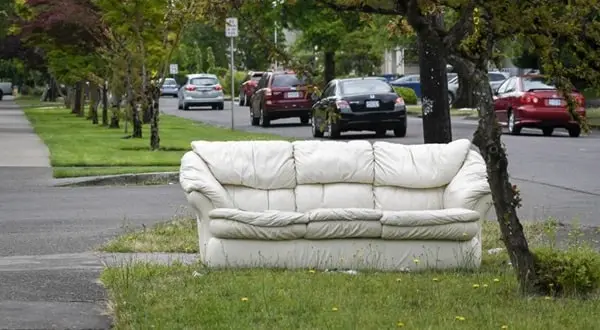Yes, it is generally illegal to throw someone’s belongings outside without proper legal justification or consent. Doing so can lead to criminal charges such as theft, vandalism, or destruction of property, and may also result in civil liability for damages. Specific laws and penalties vary by state, but actions involving someone else’s property are often treated as serious offenses under property and eviction laws.
Legal Implications of Throwing Someone’s Belongings Outside
1. Property Rights
- Personal belongings are legally protected under property laws. Disposing of or damaging someone’s property without their permission infringes upon their rights, even if the items are on your property.
- This applies to a wide range of scenarios, including disputes between roommates, landlords and tenants, or friends.
2. Eviction Laws for Landlords
- Landlords must follow strict eviction procedures governed by state and local laws. Simply discarding a tenant’s belongings without a court order is illegal and may result in fines or lawsuits.
- For example, in states like California or New York, landlords are required to store abandoned property for a specific period and notify the tenant before disposing of it.
3. Theft and Vandalism
- Removing someone’s property without their consent and placing it outside can be considered theft if the intent is to deprive them of the item.
- If the property is damaged during the act, it may also constitute vandalism or criminal mischief, both of which carry fines and possible jail time.
4. Constructive Eviction
- Forcing someone to leave a shared or rented space by throwing out their belongings can be classified as constructive eviction, which is illegal. Landlords or roommates cannot bypass formal eviction processes by discarding someone’s possessions.
Consequences of Throwing Someone’s Stuff Outside
1. Criminal Charges
- Depending on the value of the items involved, the act can result in misdemeanor or felony charges:
- Misdemeanor theft or vandalism for low-value items.
- Felony charges for high-value belongings or repeat offenses.
2. Civil Lawsuits
- The owner of the discarded property may sue for damages, including the cost of replacing or repairing the items, emotional distress, and punitive damages.
3. Fines and Restitution
- Courts may impose fines or order the offender to pay restitution to cover the financial loss caused by the act.
4. Landlord Penalties
- Landlords who throw out tenant belongings without legal authority may face penalties such as tenant compensation, license revocation, or fines under housing codes.
When Is It Legal to Remove Someone’s Belongings?
1. Abandoned Property
- If the owner of the belongings has abandoned them (e.g., vacated the premises and left items behind), you may have the right to remove them after following specific legal steps, such as providing notice and storing the items temporarily.
2. Court-Ordered Evictions
- In cases of formal evictions, landlords can remove tenant belongings only after obtaining a court order and following state-mandated procedures.
3. Consent from the Owner
- If the owner gives explicit permission, their belongings can be moved or discarded.
How to Handle Property Disputes Legally
1. Document the Situation
Take photos or videos of the belongings and the circumstances to protect yourself from false claims.
2. Communicate Clearly
Notify the owner in writing, giving them a reasonable deadline to collect their items before any action is taken.
3. Seek Legal Advice
Consult an attorney or local authorities to ensure compliance with property and eviction laws.
4. Involve Mediation
In disputes involving roommates or personal relationships, mediation can help resolve the issue amicably.
Conclusion
Throwing someone’s belongings outside is illegal without proper legal authority or consent. Whether the situation involves a landlord-tenant dispute, a roommate disagreement, or personal conflict, there are formal procedures that must be followed to handle property issues. Ignoring these legal requirements can lead to criminal charges, civil lawsuits, and financial penalties. Always seek legal guidance to avoid unnecessary risks and ensure compliance with the law.
Related FAQs
Q1. Can I throw someone’s stuff out if they owe me money?
Ans: No, you cannot dispose of someone’s belongings as a way to settle debts. This is illegal and must be resolved through proper legal channels, such as small claims court.
Q2. Can a landlord throw out a tenant’s belongings after an eviction notice?
Ans: No, landlords must follow formal eviction procedures and cannot remove belongings without a court order.
Q3. What should I do if my belongings are thrown out illegally?
Ans: File a police report for theft or vandalism and consider suing the responsible party for damages in civil court.
Q4. Is it illegal to throw someone’s stuff outside if they don’t live with me?
Ans: Yes, even if the person does not reside with you, their property is still legally protected. Removing it without permission can result in legal consequences.
Q5. Can I move someone’s belongings within my property?
Ans: Moving items within your property (e.g., to a garage or storage area) is generally allowed as long as the items are not damaged or discarded, but it’s best to seek the owner’s consent first.

